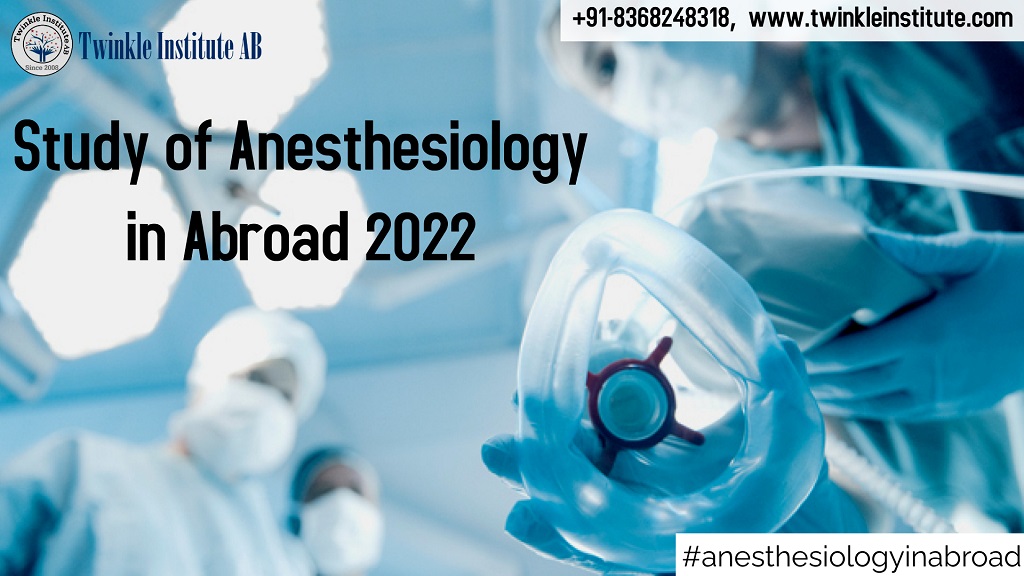Bachelor of Medicine and a Bachelor of Surgery
The Latin phrase Medicinae Baccalaureus Baccalaureus Chirurgiae, which stands for Bachelor of Medicine and Bachelor of Surgery, is also referred to as MBBS or BMBS. This is a program leading to an undergraduate degree in the medical and surgical fields. The Bachelor of Medicine and Bachelor of Surgery are the first two advanced and professional undergraduate medical degrees. Given that it is arguably one of the best degrees in the world, obtaining an MBBS from one of the best medical schools formally transforms a person into a medical professional.
Table of contents
- What is MBBS Full Form?
- Highlights – MBBS
- Browse Medical Colleges by Cities
- Advantages of MBBS
- MBBS Eligibility
- MBBS Admissions
- Top MBBS Exams
- MBBS Courses
- MBBS Specialisations
- MBBS Syllabus
- MBBS Salary
- Scope of MBBS
- Browse Medical Colleges by States
- Careers Opportunities after MBBS
This is a very time-consuming study that calls for a lot of patience and skill. The bravest and most humble profession is that of a medical professional. Participants can learn how to diagnose and treat particular diseases from the curriculum’s descriptions of different medical specialties and human anatomy. The many medical specialties covered by an MBBS degree enable students to gain a thorough understanding of their chosen field. In this article, we’ve covered the specifics of the MBBS program, including MBBS admission, courses to take after MBBS, the MBBS tuition schedule, and post-MBBS career options.
What is MBBS Full Form?
Bachelor of Medicine, Bachelor of Surgery is the full name for MBBS. A five-year undergraduate medical degree program leads to the Bachelor of Medicine, Bachelor of Surgery, or MBBS degree. The Latin phrase Medicinae Baccalaureus Baccalaureus Chirurgiae is the source of the terms Bachelor of Medicine, Bachelor of Surgery, and MBBS.
Highlights – MBBS
| Name of Course | Bachelor of Medicine and Bachelor of Surgery |
| Abbreviation | MBBS |
| Type | Degree |
| Level | Undergraduate |
| Field | Healthcare |
| Course Eligibility | 10+2 with Physics, Chemistry, and Biology |
| Course Duration | 5.5 years |
| Course Average Fee | Rs. 70,000 to Rs.2,500,000 |
| Course Average Salary | Rs. 360,000 per annum |
| Career Opportunities | Doctor, Physician, Endocrinologist, Pathologist, Neurologist, Cardiologist, Gynaecologist |
Browse Medical Colleges by Cities
| MBBS Colleges in Delhi | MBBS Colleges in Jaipur |
| MBBS Colleges in Chennai | MBBS Colleges in Bangalore |
| MBBS Colleges in Kolkata | MBBS Colleges in Mumbai |
| MBBS Colleges in Bhopal | MBBS Colleges in Coimbatore |
| MBBS Colleges in Pune | MBBS Colleges in Hyderabad |
Also Read:
- MBBS Admission
- MBBS Syllabus
- General Medicine and Surgery
- Advantages of MBBS
Bachelor of Medicine and Bachelor of Surgery is referred to as MBBS. Due to the fact that admissions are granted based on NEET exam rank, it is a very competitive program. Every year, thousands of students take the NEET exam to be admitted to MBBS programs. To prepare for the NEET exam and gain admission to prestigious medical colleges in India, many students skip a year of school.
When students achieve the necessary admissions scores, they must show up for the NEET counseling process. Numerous opportunities for a medical career in the healthcare sector are made available by successfully completing an MBBS. After successfully completing an MBBS program, candidates may choose to pursue an MS, MD, or DNB in any related specialization.
Browse MBBS Colleges by States
| MBBS Colleges in Karnataka | MBBS Colleges in Maharashtra |
| MBBS Colleges in Tamil Nadu | MBBS Colleges in Uttar Pradesh |
| MBBS Colleges in Kerala | MBBS Colleges in Andhra Pradesh |
| MBBS Colleges in Gujarat | MBBS Colleges in Madhya Pradesh |
| MBBS Colleges in Telangana | MBBS Colleges in Rajasthan |
Browse MBBS Colleges by Locations
| MBBS Colleges in Chennai | MBBS Colleges in Bangalore |
| MBBS Colleges in New Delhi | MBBS Colleges in Hyderabad |
| MBBS Colleges in Kolkata | MBBS Colleges in Bhopal |
| MBBS Colleges in Patna | MBBS Colleges in Mumbai |
| MBBS Colleges in Ahmedabad | MBBS Colleges in Jaipur |
Types of MBBS
Medical colleges and universities grant the MBBS degree, a professional undergraduate degree in the fields of surgery and medicine. A Bachelor of Medicine and a Bachelor of Surgery are two distinct degrees, despite what the name suggests; they are combined into a single discipline and practiced together. An internship is included in the five- to six-year duration of the MBBS degree.
Candidates for this program must have completed 10+2 coursework in physics, chemistry, biology, and English. Candidates who want to pursue their career as a doctor should earn an MBBS degree.
One of the best professional degrees in science and medicine is the Bachelor of Medicine and Bachelor of Surgery (MBBS) degree. The MBBS program lasts five years plus a year-long internship in a nonprofit organization, hospital, or rehabilitation facility.
MBBS Eligibility
Candidates must be eligible to receive a Bachelor of Medicine and Bachelor of Surgery (BMBS) or Master of Medicine and Bachelor of Surgery (MBBS) degree. Candidates should also be aware of the fundamental prerequisites, such as course comprehension, for pursuing a bachelor’s degree in medicine or a bachelor’s degree in surgery. These are the requirements that students must meet in order to be eligible for MBBS admission:
- Although the minimum score requirements can vary, general applicants must have received at least 50% on the intermediate test.
- To take the MBBS NEET exam, you must be at least 17 years old.
- The medical entrance exam required for admission to an MBBS program must be passed by applicants.
- Candidates should have completed at least 10 + 2 with Physics, Chemistry, and Biology as required subjects.
- Candidates must have a minimum of 40% to be eligible for the reserved category.
- The MBBS course has a 25-year age limit as its upper age limit.
MBBS Admissions
Students can enroll in the MBBS program offered by various institutions and schools in a number of ways. The educational institutions that offer the Bachelor of Medicine and Bachelor of Surgery programs have different recruitment strategies they employ to enroll students. Candidates must adhere to the various strategies with a thorough understanding in order to be admitted to universities and earn an MBBS degree. The different ways that applicants may be accepted to this degree are described below.
Entry-level tests: Colleges and universities most frequently use medical entrance exams to evaluate applicants. Candidates for the Bachelor of Medicine and Bachelor of Surgery (BMBS or MBBS) degree take various entrance exams.
Students can apply to prestigious universities that offer these degrees based on their exam results.
Merit-based: There are colleges and universities that offer applicants admission to these programs based on the grades received in 10 + 2. The requirements for eligibility are based on the skills acquired in 10 + 2. These colleges frequently accept applicants based on their cut-off lists. However, there are very few of these colleges, and the medical entrance exam is a requirement for this particular degree.
Top MBBS Exams
A few universities hold entrance exams for the bachelor’s degrees in medicine and surgery (BMBS or MBBS). Some top universities base admission decisions for this degree on both the entrance exam and the cumulative grade point average from the student’s last year of school.
NEET, or the National Eligibility-Cum-Entrance Exam
Admission to the MBBS program is determined by passing the National Eligibility-Cum-Entrance Exam for Undergraduate Courses (NEETE-UG). All medical universities and colleges around the world use NEET-UG as their standard entry-level admissions foundation. Every single candidate who wishes to be hired for the MBBS program must submit an application for the National Eligibility-Cum-Entrance Exam-UG.
| NEET Exam Dates | NEET Preparation Tips | NEET Cut off |
| NEET Eligibility Criteria | NEET Application Form | NEET Result |
Previously there was an exception for admissions to AIIMS and JIPMER MBBS because these educational institutions seemed to undertake their own medical entrance exam. But meanwhile, those examinations have also been eliminated.
Browse Medical Colleges Accepting NEET
| CMC Vellore | KMC Manipal |
| KMC Mangalore | MS Ramaiah Medical College Bangalore |
| St Johns Medical College Bangalore | AFMC Pune |
| KPC Medical College and Hospital, Jadavpur | Maulana Azad Medical College, New Delhi |
| HIMSR New Delhi | IMS BHU |
MBBS Courses
The Bachelor of Medicine and Bachelor of Surgery (BMBS) or Baccalaureus Medicinae, Baccalaureus Chirurgiae (MBBS) degree programme is a national undergraduate specialist graduate degree program for medical aspiring candidates. This MBBS course programme allows interested and eligible candidates to study medicine and surgery in the country. The length of the MBBS course is five and a half years, with a one-year internship.
Popular Online Medicine Courses and Certifications
- Online Psychology Courses
- Online Health Care Management Courses
- Online Ayurveda Courses
- Online Pathology Courses
- View all Online Health Fitness & Medicine Courses
MBBS Specialisations
Through its MBBS degree programs, the university seeks to give all MBBS students a cutting-edge, growth-driven education. A Bachelor of Medicine or Bachelor of Surgery degree makes graduates marketable in the current global environment. Since there are fewer job opportunities in the market and there are far more doctors than there are openings, there is a huge demand for medical professionals throughout India. Students have the chance to accomplish their goals in the medical and healthcare sectors by earning an MBBS degree.
| Ophthalmology | General Medicine |
| Orthopedics | General Surgery |
| Anaesthesiology | Obstetrics & Gynaecology |
| Dermatology | ENT (Ear, Nose, and Throat) |
| Psychiatry | Pediatrics |
MBBS Syllabus
We have mentioned below MBBS subjects. It may vary from college to college.
| Semester-I | |
| Fundamentals of Disease and Treatment | Locomotor System |
| Introduction to Medical Practice I | Introduction to Molecular Medicine |
| Cell Biology | Introduction of Embryology and Histology |
| Semester-II | |
| Health and the Environment | Neuroscience 1 (Peripheral System) |
| Basic Haematology | Respiratory System |
| Healthcare Concepts | – |
| Semester-III | |
| General Pathology | Environmental Pathology |
| Neoplasia | Nutrition Disorders |
| Hereditary Disorder | Immunity |
| Semester-IV | |
| Systemic Pathology | Alimentary System |
| Haematology | Common Symptoms and Signs |
| Cardiovascular System | – |
| Semester-V | |
| Special Pathology | Growth Disturbance and Neoplasia |
| Clinical Pathology | Immunopathology |
| General Pathology | – |
| Semester-VI | |
| Epidemiology of communicable diseases | Reproductive and child health |
| Epidemiology of non‐communicable diseases | – |
| Semester-VII | |
| Infectious disease | Diseases of immune system, connective tissue and joints |
| Nutritional disease | Hematology and Oncology |
| Geriatric disease | – |
| Semester-VIII | |
| Endocrine disease | Brain Death, Organ donation, Organ preservation |
| Metabolic and Bone disease | Nervous system |
| Emergency medicine and critical care | – |
| Semester-IX | |
| Nervous system | Environmental disorders, poisoning and snake bite |
| Kidney disease | Emergency medicine and critical care |
MBBS Salary
Aspirants’ average pay for an MBBS program varies gradually. The sector, company, and candidate’s commitment and work history may all have an impact on the variation. The MBBS salary scale according to years of experience is listed below.
Year-wise salary for MBBS
| Experience (in years) | Salary scale from | Salary |
| 0-6 years | 2 to 4 lakh per annum | 5 to 8 lakh per annum |
| 6-12 years | 6 to 10 lakh per annum | 10 to 14 lakh per annum |
| 12-20 years | 11 to 14 lakh per annum | 15 to 20 lakh per annum |
Also Read: BAMS
MBBS students are extremely focused on the healthcare sector. MBBS students can find employment in both the public and private sectors. The fields of biomedical firms, medical facilities, healthcare facilities, laboratories, emergency rooms, community health centers, and private practice all offer more than enough employment opportunities for these specialists. With the growth and commercialization of the healthcare sector, MBBS students appear to have a variety of options.
The majority of students choose to pursue a master’s degree in this field in order to become well-known doctors, even though the MBBS is a medical degree that allows graduates to prescribe medications.
Apollo Munich Health Industries Co Ltd, Medanta Hospitals, Sun Pharmaceutical Industries Ltd, Fortis Healthcare Ltd, and Cipla Ltd are the principal recruitment firms for MBBS candidates, and they offer positions like anesthetist, cardiologist, and many others.
Browse Medical Colleges by States:
| Medical Colleges in Uttar Pradesh | Medical Colleges in Kerala |
| Medical Colleges in Tamil Nadu | Medical Colleges in Madhya Pradesh |
| Medical Colleges in Maharashtra | Medical Colleges in Gujarat |
| Medical Colleges in Delhi | Medical Colleges in Punjab |
| Medical Colleges in Karnataka | Medical Colleges in Andhra Pradesh |
Students also liked
- Online Degree and Diploma Courses
- Online Free Courses and Certifications
- Online Short Term Courses and Certifications
- Online Certification Courses
- View List of all Online Courses and Certifications
Top Certification Course Providers
Careers Opportunities after MBBS
In this section, we have discussed some of the career opportunities after MBBS degree.
Medical Officers: Doctors who are primarily in charge of clinics are known as medical officers, also known as chief medical officers. These doctors strongly advise their patients in addition to offering medical assistance, identifying issues, and instructing patients on how to manage medical conditions and illnesses. One of the best career options for MBBS graduates is this field. Medical officers are crucial in overseeing patient care and the tasks performed by other medical personnel. They may occasionally be able to actively participate in the treatment when services are first implemented. They may very well support the evaluation and diagnosis of treatment plans and needs for both families and individuals.
Medical Surgeon: The surgeon is responsible for making the crucial diagnosis for the patient, performing the surgery, and providing the patient with ongoing medical attention and treatment. One of the best post-MBBS career options is surgery. The surgical team leader is frequently considered to be the surgeon. Medical surgeons work to make sure that all of the other leaders of the surgical team collaborate and coordinate, which typically calls for another surgeon or an assistant to the surgeon, anesthesiologist, and nursing staff in the operating room. They perform operations on patients to improve or recover their health, such as fixing injury issues or preventing depression. They adhere to surgical techniques developed primarily in operating room settings.
General Physician: Graduates with an MBBS degree can start their careers as general physicians, researching, diagnosing, treating, and curing patient illnesses. One of the best career options for MBBS graduates is this field. When a disease is in its early stages, a doctor typically treats it; however, if it is still serious after being diagnosed, the patient may be referred to a specialist. General practitioners are trained medical professionals who offer a range of nonsurgical medical care to elderly patients. If they haven’t addressed or resolved such complications, they continue to serve the patient. They deal with complicated, important, or severe health issues.
Physicians: From diagnosing chronic diseases to making recommendations for healthcare services, doctors treat patients in a variety of ways. Despite the fact that doctors’ areas of expertise can occasionally diverge greatly, all specialties share the common goal of helping patients identify and treat illnesses and injuries. Sometimes people carry out screening exams, gather medical records, carry out and analyze diagnostic procedures, and offer a course of treatment to accomplish this. A higher level of intelligence and education is needed to become a doctor, which typically entails a bachelor’s degree, graduation from medical school, and years of practice.
Paediatrician: A medical professional is in charge of diagnosing and treating sick children as well as monitoring their general development and growth. Pediatricians conduct routine, in-depth tests on infants and young children to test and monitor their health and regular physical performance. They also observe children to assess their health and ask questions to learn more about potential complications. They write prescriptions and give detailed instructions on how to take the medication.
Dietician: Dieticians create a balanced nutrition plan for patients or the general public and promote wellness. Dietitians put a lot of emphasis on educating people about nutrition and health, which helps people stay healthy. People share their recommendations and advice on nutrition. In order to help maintain conditions like food allergies and intolerances, dietitians may also alter diet plans. They impart knowledge on people and groups about the fundamentals of a healthy diet, how to make the right food choices, and how to control their nutrition in order to improve their quality of life. They keep tabs on the food service’s operations to make sure that they adhere to the standards for nutrition, health, sanitation, and safety.
Other Popular Medical Degrees
- BUMS (Bachelor of Unani Medicine and Surgery)
- BAMS (Bachelor of Ayurvedic Medicine and Surgery)
- BDS (Bachelor of Dental Surgery)
- BHMS (Bachelor of Homeopathic Medicine and Surgery)
- CH (Master of Chirurgiae)
- MD (Doctor of Medicine)
- MDS (Master of Dental Surgery)
Frequently Asked Question (FAQs) – MBBS (Bachelor of Medicine and a Bachelor of Surgery) Courses, Admissions, Eligibility, Syllabus
Question: Is it necessary to pass the NEET exam in order to study MBBS at private medical colleges as well?
Answer: In order to be admitted to private medical colleges, you must also pass the NEET, which is the common entrance exam for all undergraduate medical degrees.
Question: Is enrolling in a private college for MBBS worth it?
Answer: Of course, it makes no difference where you receive your MBBS degree. What matters is how you are doing in your academic medical program.
Question:Is an Indian MBBS recognized in the USA?
Answer: Since postgraduate medicine is the fundamental level of practice in the United States of America, an Indian student would not be able to begin practicing there right away after earning their MBBS. The medical courses that must be taken in the United States after earning an MBBS degree were outlined in detail by the United States Medical Licensing Examination (USMLE). The United States Medical Licensing Examination step 1 is open to doctors from India who have completed their second year of MBBS in India.
Question: What does MBBS go by in the US?
Answer:The medical degree is known as an MD (Medicine Doctor) in the United States, not as an MBBS. In the United States of America, medical coursework is taught exclusively in English. The MCI, WHO, ECFMG, and MCC medical degrees are recognized in America. The MBBS standard for clinical education had already been established in the United States.
Question: What does an MBBS degree mean in its entirety?
Answer:Bachelor of Medicine and Bachelor of Surgery is the meaning behind the acronym MBBS. The two professional undergraduate medical degrees—Bachelor of Medicine and Bachelor of Surgery—are both offered through this program. The typical length of the MBBS curriculum is five to six years, including the internship phase.
Question: Is MBBS required for career as a doctor?
Answer: The most widely used and respected doctoral degree is MBBS (Bachelor of Medicine and Bachelor of Surgery). This is the only bachelor’s degree that entitles holders to add “doctor” after their names. The MBBS is a medical undergraduate degree program.
Please visit the Twinkle Institute website for more information.






